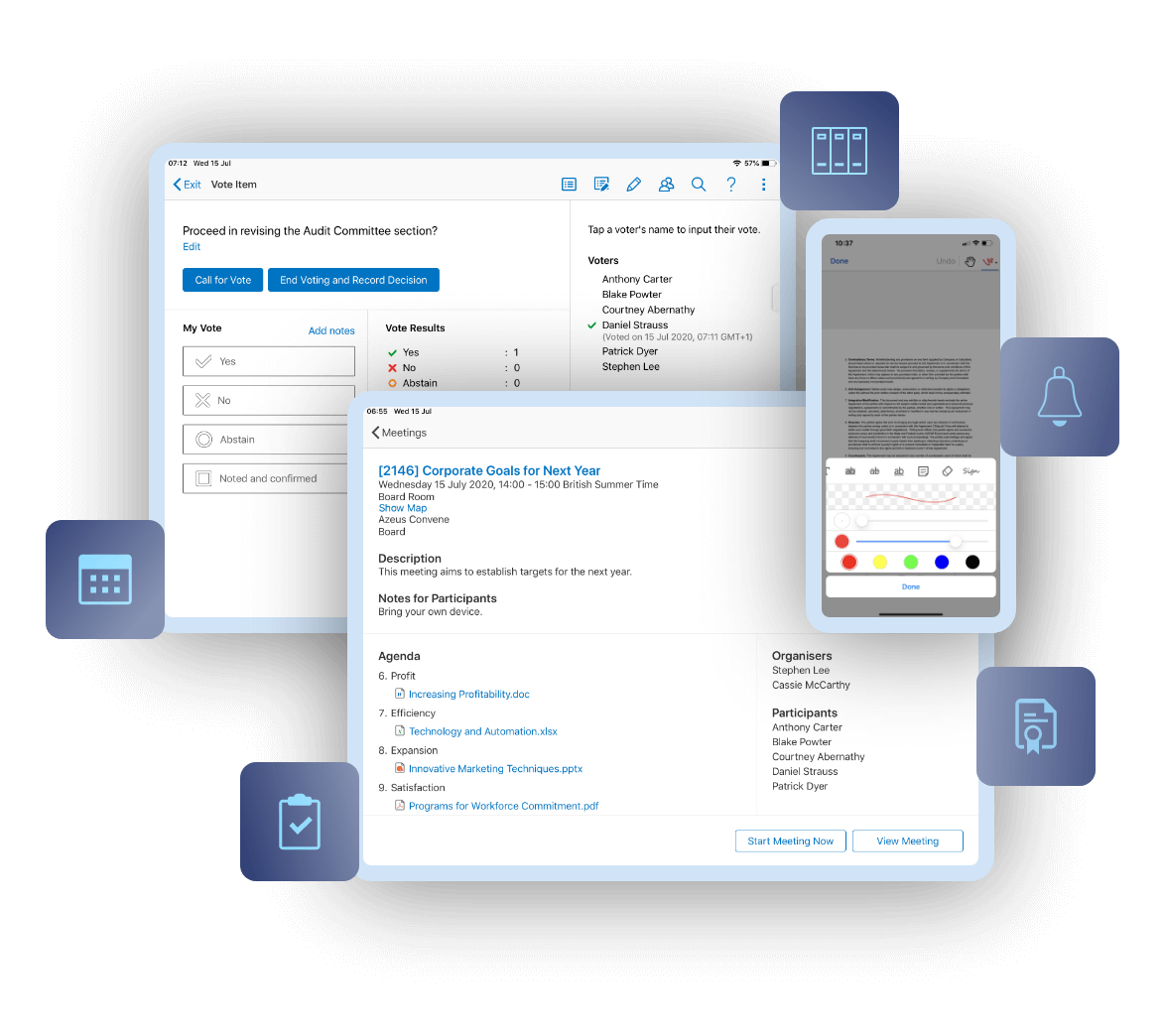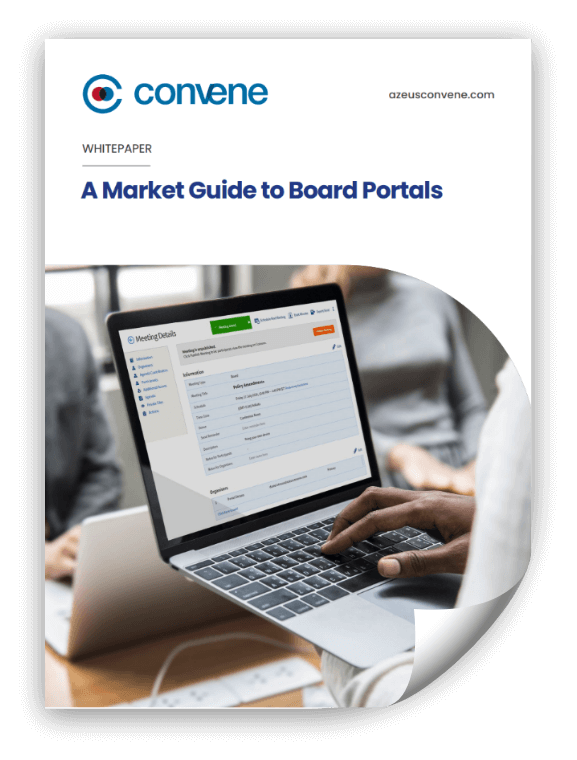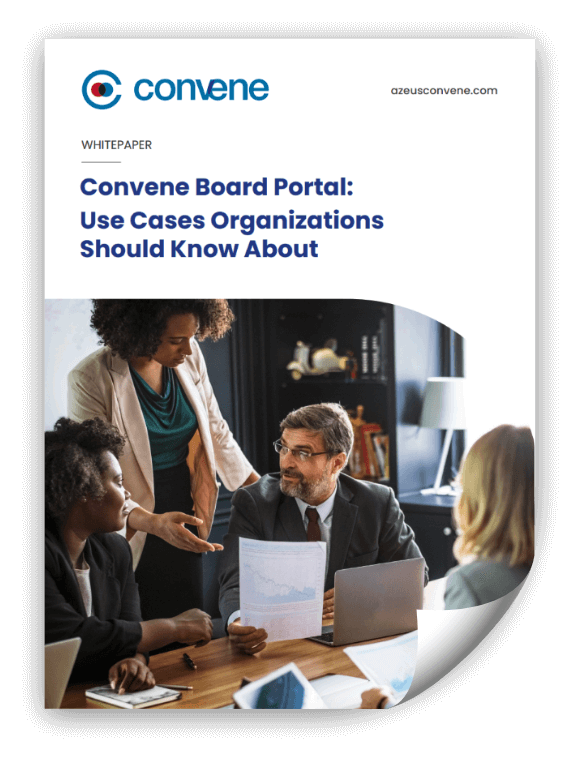What is board governance?
Board governance is a framework composed of structures, processes, rules, and practices from which the board operates and is directed. Effective board governance involves competent board leadership, efficient management processes, and strategies to attain the enterprise’s goals.
Get Started for Free
Why is Board Governance Important?
Good board governance is vital to an organization’s long-term success as it provides the strategic direction and guidelines for the day-to-day operations of the company. Ineffective or bad board governance can lead to malpractices, mismanagement of resources, abandonment of responsibilities, financial distress, and even legal consequences for the organization.

Best Practices in Board Governance
Explore Best PracticesTake the Next Move
What are the types of board structure?
Board types may vary depending on the organization’s goals and specific requirements. Here are some of the most common types of boards.



Governing board
A governing board has the power to lead and manage an organization. It adheres to the best interests of the shareholders and provides strategic direction to management.
Working board
Frequently seen in smaller or recently established organizations, a working board has members who are not only part of the board of directors but are also employees of the company.
Advisory board
This type of board provides guidance and expert opinion on a particular subject to an organization’s key leaders and main board.
Managing board
A managing board, also referred to as an executive board, leads the daily operations of the organization. Its responsibilities also extend to the decision-making and strategizing of the company.
Fundraising board
As the name suggests, a fundraising board is in charge of raising money and other resources for the organization’s purpose.
Policy board
A policy board develops policies and practices for the staff, to be implemented by the executives of an organization.
For-Profit vs Nonprofit Governance
While governance applies to all sorts of boards, there are two main distinctions when it comes to purpose: for-profit and nonprofit.
For-Profit Governance
- Owned by shareholders
- Generates money for profit
- Board members receive compensation
- Profit is distributed to shareholders
For Nonprofit Governance
- Publicly owned and serves the public
- Meets the needs of the advocacy or the community
- Board members are usually volunteers
- Excess resources are used to fulfill the
organization’s mission

Key Features of Board Governance Software
Here are some of the capabilities you should consider when choosing the best board software for your directors — for real-time collaboration and informed decision-making anytime, anywhere.
What Should Be The Board’s Key Focus Areas?
Board governance is a framework that should empower the direction of the organization, especially on top-of-mind matters.
How Convene Can Improve Board Governance
Taking your board to the next level of governance requires a board portal that can uphold efficiency, communication, transparency, and security.

Improve Boardroom Performance
With a smart board portal, uphold efficiency through streamlined meetings from preparation to actions management.

Enhance Compliance and Security Measures
Protect confidential data with Convene’s robust security features designed to comply with governance policies and guidelines.

Collaborate Digitally
Directors can easily collaborate through intuitive tools available wherever they are.

Promote Transparency and Accountability
Fulfill board responsibilities confidently with secure and traceable decision-making tools.
Get Started with Convene
See why organizations worldwide are making the switch to board portal for improved board governance. Convene has been rated the top board management software by several trusted sources of technology reviews.




















